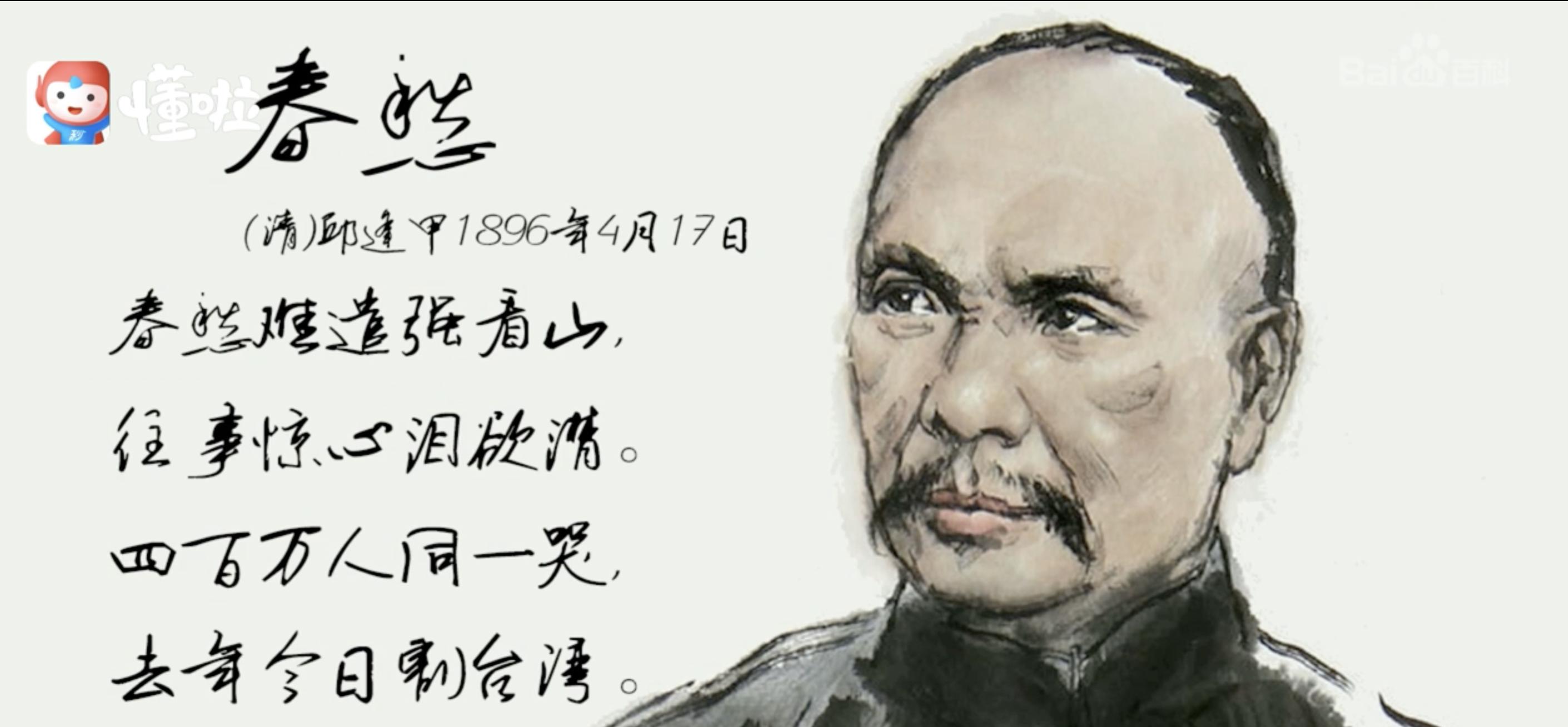Qiu Fengjia (1864-1912), also known as Canghai, the character Xiangen, the number of the immortals, also known as Zhongfu, was a patriotic poet from Guangdong Province in China, and Liang Qichao called him "the giant of the poetry revolution" in the late Qing Dynasty.
He wrote thousands of poems in his lifetime, but unfortunately, the works of his early years were burned down, and only 1,700 poems collected in the Lingyunhai Rilou Poetry Banknote were passed down to the world.
From the existing poems, people can fully feel the poet's fierce patriotic passion and deeply understand his sincere heart to seek return to the motherland and realize the reunification of the motherland. There are many poems among them, which profoundly reflect the ugly acts of imperialism in dividing up China at the end of the nineteenth century, and reflect the sharp class contradictions and national contradictions in the Qing Dynasty.
Today, reading Qiu Fengjia's poem is very beneficial to understanding China's modern history and understanding the profound disasters that all nationalities in our country have suffered, so as to arouse even stronger patriotic enthusiasm.

Image source Baidu invasion and deletion
Sending praises to Taiwan
Qiu Fengjia (Qing)
Caption: Draft of the C Application, written in the 22nd year of Qing Guangxu
Relatives and friends ask each other, and I read the table.
All losses are not a foregone conclusion, and they have drowned in the ashes.
Abandon the original land and call out to heaven to see sorrow.
If you don't die for ten years, you will come back with the soil.
past events
In the past, He Kan said, blood and tears.
The dragon returned to the sky outside the rain, and the Ao did not have a mountain in the sea.
Silver candles are poetry, and tooth flags are hunted back.
I don't know how to become a foreign land, and I dream of Taiwan at night.
Spring sorrow
Spring sorrow is difficult to send to look at the mountain,
The past is in tears.
Forty million people wept in unison,
Last year today's discount Taiwan.
Yau Was born in 1864 in Taiwan. Qiu Fengjia's ancestors were originally Hakka people in Guangdong, because the locals had a lot of land and little land, and during the Qianlong period, his great-grandfather Qiu Shijun moved to Taiwan to settle down.
When Qiu Fengjia was 13 years old, a hospital examination was held in Taiwan. Qiu Fengjia wrote "TheOry of the Pros and Cons of the Whole Taiwan", and the chief examiner at that time was Ding Richang, a pioneer of the foreign affairs movement, and after reading it, he greatly appreciated it. He was designated as the first in the hospital examination, and he personally gave a seal of "Dongning Caizi".
The young Qiu Fengjia withstood the temptation of fame and fortune and immersed himself in learning. Raised at the age of 24 in high school. The next year, he went north to participate in and passed the examination and the temple examination, and was the chief of the ministry, realizing the dream of the title of the gold list. At the age of 25, China was worried about internal and external troubles and the country was struggling. Because of its extremely important strategic position, Taiwan has been coveted and violated by the great powers. He resigned his promising official position and returned to Taiwan to establish education.
"If we want to strengthen China, we must first raise talents; if we want to raise talents, we must open up schools as the basis."
However, the Sino-Japanese War broke out, and after the Qing government signed the Treaty of Maguan, Taiwan was ceded to Japan.
On May 25, 1895, Qiu Fengjia and others established Tang Jingsong as president and established the "Taiwan Democratic State" and changed its era name to "Yongqing" to show that Taiwan would always be subordinate to China. On the same day, they sent a telegram to the Qing government:
The gentlemen of Taiwan, righteous and not subject, are willing to serve the island country and wear shengqing forever.
On May 29, Japanese troops landed on Taiwan. Qiu Fengjia led the rebel army in a bloody battle for 20 days and nights, and finally ran out of ammunition and food and retreated to Taichung. On July 26, Qiu Fengjia, who could no longer fight the Japanese army, left his hometown of Taiwan with full of grief and indignation. In 1896, he wrote the poem "Spring Sorrow". This poem carries not only his deep love for Taiwan's homeland, but also the deep affection of four million Taiwan compatriots for its homeland.
Qiu Fengjia, who is on the mainland, continues to devote himself to the cause of education, the promotion of new learning, and the popularization of people's wisdom.
After the founding of the Republic of China, Qiu Fengjia was elected to the Senate. At this time, he has been ill for a long time, but he still does not forget the national security. When he heard that Sun Yat-sen would give way to Yuan Shikai, he couldn't help but worry: "From now on, the country will be troubled!" The old treacherous giants of the Yuan clan will not be loyal to the Republic of China. "
In February 1912, qiu Fengjia's life was coming to an end, and on the occasion of his death, his last words were:
"The burial must be southbound, I will not forget Taiwan also!"